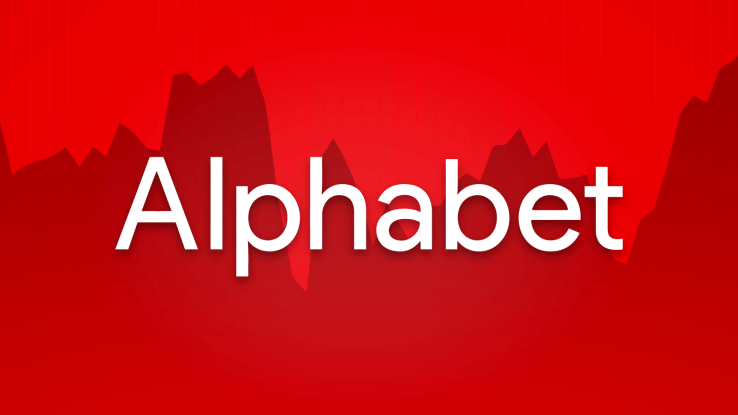Alphabet Becomes The Most Valuable Public Company In The World
 Today was a huge day for Alphabet — the first day it finally broke
out its “other bets” in its earnings report — and boy did the company
not disappoint.
Today was a huge day for Alphabet — the first day it finally broke
out its “other bets” in its earnings report — and boy did the company
not disappoint.The company smashed expectations on both ends, bringing in $21.3 billion in revenue and earnings of $8.67 per share. Analysts were expecting earnings of $8.09 on $20.8 billion in revenue.
And with that, Alphabet became the most valuable publicly-traded company in the world — coming in at a market cap $558 billion after jumping about 8% after the company reported its fourth-quarter earnings, and passing Apple, which sits at a market cap of $535 billion.
There weren’t any huge surprises on the earnings call that caused the stock to dip, but its ranking still depends on whether or not the company gives up those gains in extended trading. Either way this is a significant moment for the company and the technology market in general. Alphabet had a huge opportunity to finally pass Apple as the most valuable company in the world.
There’s a clear narrative here. Alphabet, a software company with a few extra hardware bets, shares have dramatically outperformed those of Apple, a hardware company with a few extra software bets.
“Our very strong revenue growth in Q4 reflects the vibrancy of our business, driven by mobile search as well as YouTube and programmatic advertising, all areas in which we’ve been investing for many years,” CFO Ruth Porat said in a statement with the earnings report.
In the past year, Apple’s stock has not performed well.
Meanwhile, Google’s stock was on the rise for the past 12 months.
So, not surprisingly, the two quickly collided in terms of their market capitalization.
Google’s core businesses continue to grow as well — today the company said that Gmail grew to 1 billion active users. That means it has about half a dozen services that have around 1 billion active users, a number most companies (other than perhaps Facebook, which said today that WhatsApp had passed the 1 billion user mark) will envy. (CEO Sundar Pichai didn’t specify if that was daily actives or monthly actives, so we’ll probably assume the latter.)
In terms of Google’s core advertising business, cost-per-click fell 13% year-over-year, while paid clicks increased 31% year-over-year. This has been a trend for Google — as more activity shifts to mobile devices, the value of each advertisement click tends to go down. Google’s core business is still printing money, to be sure.
Google’s extraneous operations, like Nest, have never been separate from its core business. So investors have had basically no idea how its other projects are going — and how much they may contribute to the company — other than estimates. Google has gotten into all sorts of other areas, but now we have a rough idea of how those other areas are performing.
So far, that bet is growing in revenue at least: other bets accounted for $448 million in revenue in 2015, up from $327 million in revenue in 2014. That being said, it showed huge widening losses — going to a loss of $3.6 billion from $1.9 billion in 2014.
Google, too, is still not immune to what’s happening with foreign exchange rates and the general global economy. Revenue was up 18% year-over year, though in constant currency it would have risen $24%. Apple, for example, said there was a difference in $5 billion in revenue if not for foreign exchange rates, and for Google that represents about $1 billion in revenue.
Perhaps this is a signal of the challenges hardware businesses are going to face. Apple’s growth engine — one of the strongest in the world for the longest time — has started to stall as it faces economic headwinds globally. There’s also the question of saturation, and how willing people are to upgrade. Meanwhile, people are still searching and using Google’s software relentlessly, and the company is starting to place money on other bets.

 Newsletters
Newsletters

10.9k
SHARES